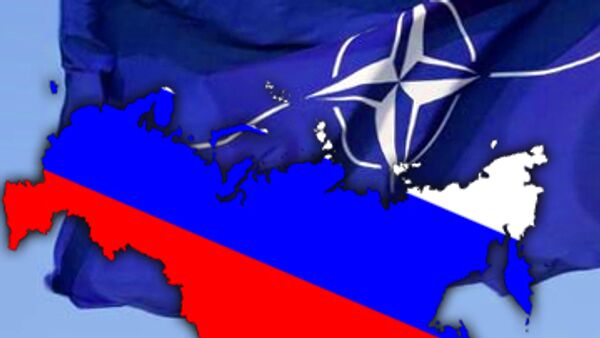Closer cooperation with Russia should become a major foreign policy priority for NATO, but better relations with Moscow cannot come at the expense of the security of eastern European alliance members, an influential U.S. foreign policy research center has said.
A report titled The Future of NATO, which provides an expert view of alliance's foreign policies, was issued by the Council on Foreign Relations on Wednesday.
NATO is currently preparing its new strategic plan, due to be released in November. The Council named the improvement of ties with Russia among its three recommendations for aliance's foreign policies. The main recommendations are to maintain the idea of NATO's values in Europ, and to develop partnership with the European Union and democratic countries which are not members of the alliance.
"The core problem in NATO-Russia relations can be summed up quite simply: NATO will not allow Russia to have a veto over alliance decisions, while Russia believes it is a great power deserving a full voice in European security affairs. Because NATO has been able to pursue policies despite Russian objections, it has done so, breeding further resentment from Moscow every time," the report said.
According to the report, "NATO has sought to create security and stability throughout eastern Europe", while Russia "has sown discord and instability in places such as Ukraine, Moldova, and Georgia in order to increase its influence and prevent further encroachment by NATO."
NATO froze ties with Russia following the August 2008 armed conflict with Georgia and the recognition by Moscow of Georgia's breakaway regions of Abkhazia and South Ossetia.
However, Russia-NATO ties have improved in recent months as a result of a course towards "resetting" thorny relations between Moscow and Washington taken by Russian President Dmitry Medvedev and his U.S. counterpart Barack Obama.
The report said that the ability of NATO and the United States to collaborate with Russia "will depend heavily on how Russia understands the "reset" of relations sought by the Obama administration."
Pointing to Russia's position over tougher sanctions against Iran, which is suspected by Western powers of attempting to develop nuclear weapons, the organization said "each time President Dmitri Medvedev has hinted at support for tough sanctions, Prime Minister Vladimir Putin has thrown cold water on the idea."
Medvedev said on March 1 he did not rule out that Moscow would back sanctions against Iran, but added that if were used, they should be a "balanced" last resort.
In late January, the Russian and NATO chiefs of staff met in Brussels for the first time since their relations became warmer. As a result of the talks, a framework military cooperation treaty was approved, which is seen as an important step toward the restoration of military ties between Russia and the alliance.
The report said the NATO-Russia Council "appears ready to expand the number of joint exercises and training operations to deal with issues such as terrorism and nuclear safety."
"If Europeans can manage to fulfill their commitments to the NATO response force, then NATO could propose a joint NATO-Russia response force to manage emergency situations across the region," it stated.
The Council also advised NATO to "take seriously contingency planning for the protection of the Baltic states, particularly Estonia and Latvia, while recognizing that transparency is essential to assure the Russians these efforts are purely defensive."
Obama scrapped plans last year for interceptor missiles in Poland and a radar in the Czech Republic pursued by his predecessor as protection against possible Iranian strikes in an apparent move to ease Russian security concerns.
In February, however, Romania and Bulgaria said they were in talks with the Obama administration on deploying elements of the U.S. missile shield on their territories from 2015, triggering an angry reaction from Moscow.
NEW YORK, March 4 (RIA Novosti)




